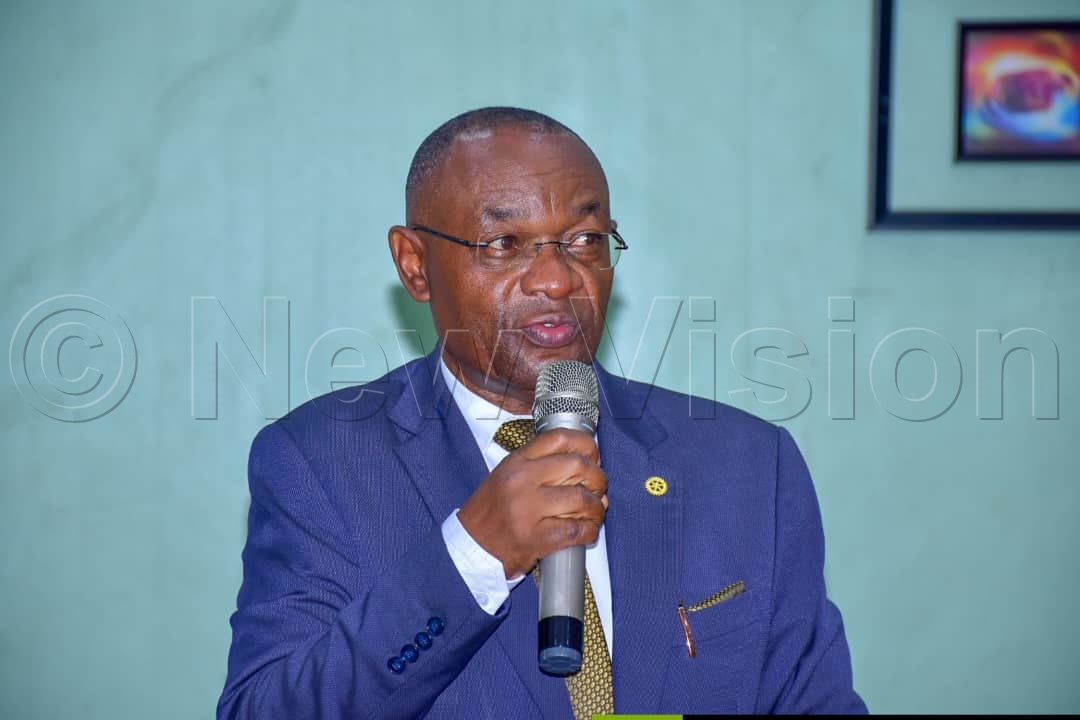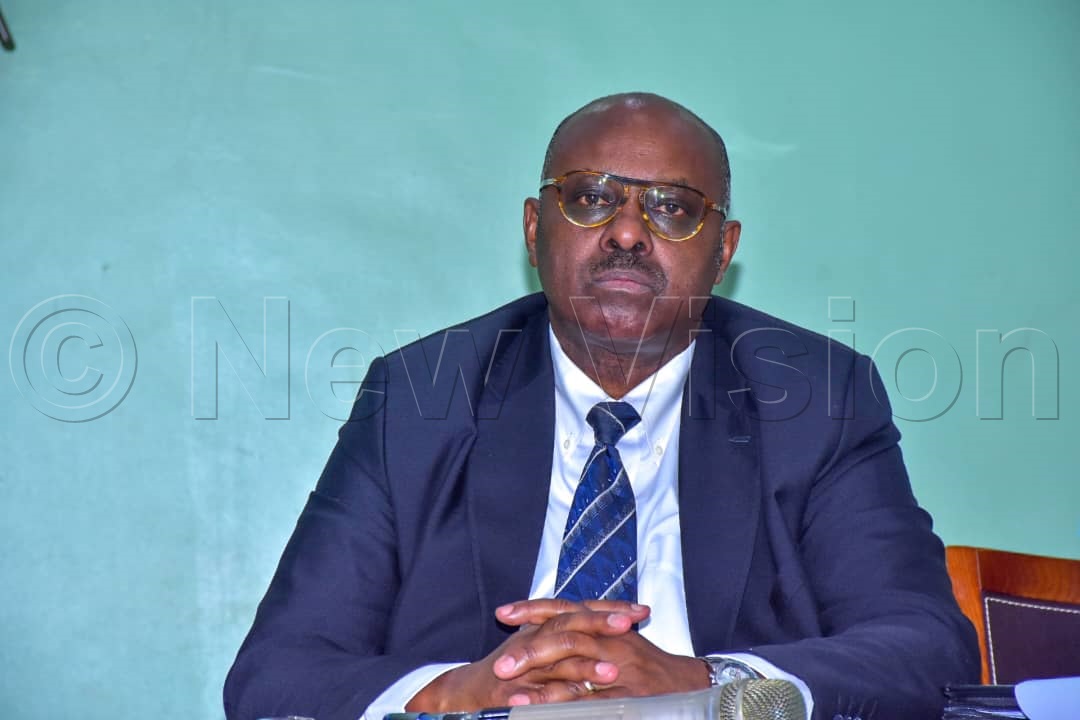Local Government officers tasked to uphold service delivery standards and accountability
Magyezi appealed to the officers to maintain stable personnel relations and avoid disruptions as negotiations with the Ministry of Public Service continue.
Group Photo: The Ministry of Local Government’s quarterly meeting of CAOs, city, municipal and division town clerks in Kampala on September 25, 2025, at Imperial Royale Hotel. (Photo by Sharon Nabasirye)
__________________
Chief Administrative Officers (CAOs), town clerks and municipal town clerks across Uganda have been cautioned to strengthen accountability and improve supervision of government resources, or risk derailing service delivery at a critical time when the government is under pressure to fulfill its manifesto commitments.
Speaking at the Ministry of Local Government’s quarterly meeting of CAOs, city, municipal and division town clerks in Kampala on Friday, September 25, Local Government Minister Raphael Magyezi reminded the officers that they are custodians of government assets, funds, and human resources.
Warning that ongoing threats by the Local Government Workers Union to strike over salaries would paralyse services if not handled carefully, Magyezi appealed to the officers to maintain stable personnel relations and avoid disruptions as negotiations with the Ministry of Public Service continue. “When you are still negotiating, you don’t lay down your tools. Local government services touch livelihoods, drugs, and education. If workers strike, the entire country could grind to a halt,” he said, during the meeting at Imperial Royale Hotel.
Local government minister, Raphael Magyezi, giving his remarks. (Photo by Sharon Nabasirye)
Assuring the officers of enhanced resources, the minister also revealed that the Government had procured vehicles worth shs35.2 billion for district chairpersons, city and municipal mayors, which will be distributed before November 2025.
He stressed that the vehicles must be used strictly for service delivery, not political campaigns.
On remuneration, Magyezi recalled that pay for CAOs and Town Clerks was recently increased in recognition of their wide-ranging responsibilities, ranging from supervising teachers and health officers to managing water systems and infrastructure.
He said other categories of local government workers would be considered in phases.
Reports on service delivery demanded
Magyezi tasked the officers to compile reports detailing progress made on the implementation of the NRM manifesto across districts, municipalities and towns.
He argued that such reporting was not partisan but essential for government accountability.
Similarly, Permanent Secretary Ben Kumumanya underscored the importance of active supervision and timely reporting, citing disturbing cases where schools were found overcrowded and poorly resourced despite being among the best performers.

Permanent Secretary Ben Kumumanya. (Photo by Sharon Nabasirye)
“If supervision and reporting were happening, these matters would have been flagged earlier,” he said.
Kumumanya directed all CAOs to submit monthly service delivery reports by the 15th of every month, starting in October. He also ordered quarterly reports on corruption, disciplinary cases, and complaints from citizens.
To improve accountability, CAOs were told to designate specific days for receiving reports and complaints from lower officials and the public.
The PS further instructed CAOs to assign their deputies to take charge of local revenue mobilisation, noting that several districts were underperforming despite clear evidence that revenue potential exists.
He pointed out that some municipalities, such as Busia, collect over sh1 billion annually despite facing challenges.
National cleaning days
In addition, local governments were told to prepare for national cleaning days, expected to be launched soon, and to organise quarterly community “barazas” where citizens can interact directly with service delivery officials.
Improving service delivery
Service delivery failures also came under sharp criticism from Jane Kyarisiima Mwesiga, Deputy Head of Public Service in charge of service delivery.
She decried the construction of government projects such as schools, health centres and markets without adherence to technical standards or adequate planning for maintenance.
According to Mwesiga, some facilities are handed over without staffing or operational budgets, leaving local governments with buildings they cannot sustain.
“This is not just inefficient; it undermines citizen confidence in government and wastes public resources,” she said.
She challenged CAOs to assert themselves in monitoring projects within their jurisdictions, even those initiated directly by the central government.
She also called for improvements in sanitation and waste management, pointing out instances where public health facilities lacked basic maintenance despite having funds allocated for it.
Mwesiga urged officers to institutionalise lessons from ongoing monitoring exercises, including joint field visits with Resident District Commissioners and political leaders, staff rotations to avoid complacency, and consistent use of client charters.
She emphasised that these reforms should shape both national and local government budgets going forward.
Lilian Nakamate, the Jinja District CAO, pledged to step up efforts to mobilise local revenue, while acknowledging that current collections remain insufficient.
“We shall look into other revenue sources to ensure smooth running of districts, she noted.
The meeting closed with a consensus that accountability, regular supervision, and citizen engagement are the only ways to restore public trust in local government services.